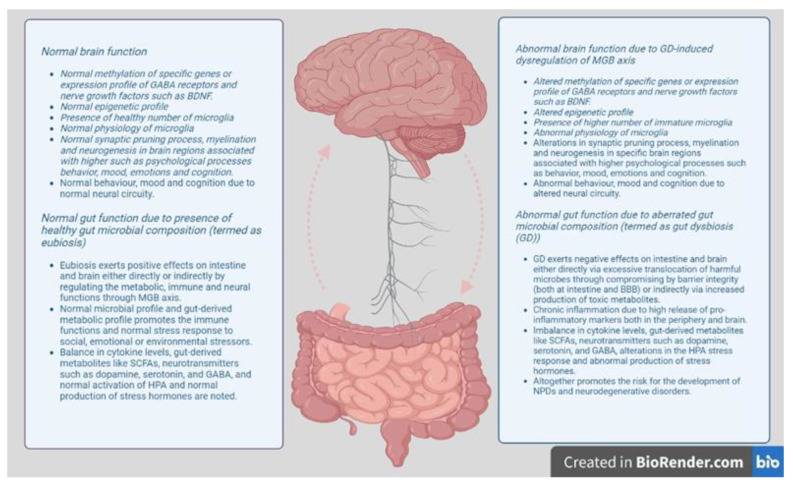Figure 1.
Gut–brain axis regulatory model. Healthy composition of gut microbiota (termed as eubiosis) maintains the integrity of the intestinal mucosa and mucus secretion, and regulates the endocrine, neural and immune signaling through the MGB axis. Healthy GM and GM-derived metabolic profiles regulate the immune function, the production of neurotransmitters and stress hormones, and maintains the function of glial cells, synaptic pruning and myelination. Thus, the MGB axis influences higher psychological functions such as mood, emotion, cognition and memory by regulating the neural circuits. Abnormal composition of gut microbiota (termed as dysbiosis) disrupts the intestinal membrane integrity and dysregulates the functions of endocrine, neural and immune system through MGB axis. Aberrated GM and GM-derived metabolic profile results in immune-driven inflammatory response, inadequate secretion of neurotransmitters, and increased stress response, immature and dysfunctional glial cells, impaired synaptic pruning, and myelination. Thus, deregulation of the MGB axis affects the higher psychological functions such as mood, emotion, cognition and memory by altered neural circuitry.

